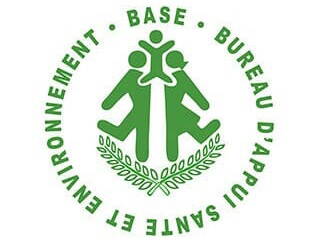From need to project idea – and not vice versa
Women's Hope International and the Chadian organization "Bureau d'Appui Santé et Environnement" (BASE) have been working together for five years. We asked Director Dahab Manoufi how he experiences the partnership.
"The health needs of the population have no time limit. However, many international organizations come to the country with a fixed time budget and relatively strict ideas for possible activities. They have a narrow scope of action, in part because of the constraints of government and institutional funders. But when you work with local communities, you have to be flexible to the contexts and gain the trust of the people. That takes time. That's why I really appreciate the work with Women's Hope International. It is unique in this way in Chad.
In contrast to other projects, we at BASE with Women's Hope always start with the needs of the population and develop solutions together. This is the only way to convince donors. In Chad, health care is organized in a decentralized manner, which is why the population plays an important role in shaping and maintaining its own local health care system. That's why, for example, we worked with communities to build several birthing centers. The men gathered sand and gravel; the women cooked for the workers. So we didn't build for the local people, we built with them. The communities are proud of what they built!
"The work of Women's Hope International is unique in this way in Chad." Dahab Manoufi, director of the partner organization BASE
Most importantly, the women trust the medical services much more than they used to, thanks to the good social anchoring of our work. As a result, they increasingly visit a health center during pregnancy or childbirth. This helps to identify complications as early as possible.

In good hands: Midwife at the Rimélé Birth Center in Chad.
It is also valuable for us that Women's Hope is prepared to enter into a reliable partnership with us over many years. Because you don't gain the trust and acceptance of the population in two years. For us, Women's Hope is not simply a donor. Rather, we have come together and combined our knowledge to look at how we can best support the population in their needs.
Recently, we had an external expert evaluate our project work. What particularly impressed me: The expert said that the entire population of the Abougoudam Sanitary District, where we are active, would know the project in detail. The local staff would also do a very good, committed job. And not because an international organization tells them to, but out of conviction. This shows that we have reached the center of society with our work and can change it from within. If people start to take an interest in what is on offer in the medical field and organize themselves, we will have gained a lot not only in the health system, but also in other areas, such as at the educational level."
Cover picture: Maternité in Rimélé; Photo: Salomon Djekorgee Dainyoo/WHI/Fairpicture.
Image in article: Zara Daoud, midwife of the health center of Rimelé (right) and patient Fatimé Malik during pregnancy check-up (left); Photo: Salomon Djekorgee Dainyoo/WHI/Fairpicture
Local Partner: BASE
The Bureau d'Appui Santé et Environnement (BASE) is a Chad-based NGO that works to improve living conditions.
Our project work in Chad
Communities set the course
Our goal: Women in the Abougoudam health district have reproductive health care available to them and are empowered to demand it.
Programme Manager
Maxence Couche-Franquet
+41 31 991 55 56
maxence.couchef@womenshope.ch





